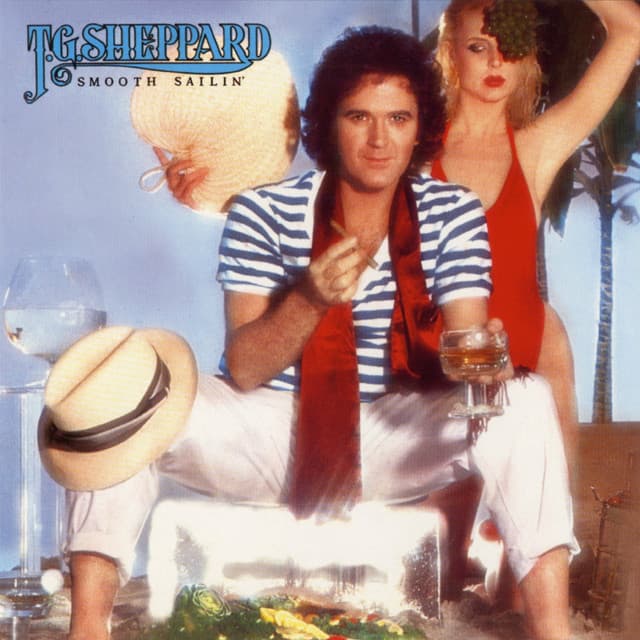
Finding Salvation and Love in a Humble Place
Let’s take a reflective stroll back to the late 1970s, a fascinating period in country music where traditional sounds began to mingle with a smoother, more polished pop sensibility. In that evolving landscape, a voice emerged that blended country roots with a charismatic delivery, creating a string of hits that resonated with a broad audience. That voice belonged to T.G. Sheppard. He had a knack for finding songs that spoke directly to the heart, often with a touch of sentimentality and undeniable charm. Today, we’re revisiting one of his most beloved and spiritually tinged tunes, a song that found both chart success and a special place in the hearts of listeners: “Do You Wanna Go to Heaven.”
“Do You Wanna Go to Heaven” was released in 1979, a hugely successful year for T.G. Sheppard that saw him solidify his position as a country music star. The song was featured on his album of the same name, “T.G. Sheppard,” which was a strong performer on the country albums charts. As a single, “Do You Wanna Go to Heaven” became a major hit, soaring all the way to number one on the Billboard Hot Country Singles chart. This marked his third career number one hit and was a significant milestone, cementing his reputation as a consistent hitmaker. Its widespread airplay and chart dominance proved its universal appeal, striking a chord with audiences who appreciated its message of simple devotion and faithful love. Its popularity wasn’t limited to the country charts; the song’s gentle crossover appeal also made it recognizable to a broader pop audience.
The story behind “Do You Wanna Go to Heaven” is rooted in the thoughtful songwriting of Curly Putman and Bobby Braddock, two highly respected names in Nashville’s songwriting community. Putman is famously known for classics like “Green, Green Grass of Home,” while Braddock has penned numerous hits for artists like George Jones and Blake Shelton. Their collaboration on this particular song resulted in a deceptively simple yet profoundly moving piece. The lyrics were crafted to evoke a sense of quiet contentment and deep appreciation for a loving relationship, drawing a subtle parallel between earthly happiness and heavenly bliss. For T.G. Sheppard, a performer known for his warm and sincere vocal delivery, the song was a perfect fit. He was able to convey the genuine emotion and conviction embedded in the lyrics, making the listener truly believe in the simple, yet powerful, promise being offered. It reflected a common desire for peace, comfort, and lasting love, themes that have always been central to country music’s appeal.
The meaning of “Do You Wanna Go to Heaven” is a tender and almost childlike invitation to find ultimate peace and joy in the embrace of a loving relationship. It metaphorically equates the profound happiness and security found with a beloved partner to the serenity of heaven. The singer isn’t offering a literal journey to the afterlife, but rather promising a profound, almost spiritual, contentment right here on Earth, within the context of their shared love. Phrases like “There’s a place where we can rest our weary wings / Hear the angels softly sing” aren’t about religious salvation in a strict sense, but about the overwhelming sense of belonging and peace that true love can bring. It’s a gentle, reassuring sentiment that suggests the greatest blessings in life are often found in simple, faithful companionship. For older listeners, this song evokes memories of finding that special someone who became their anchor, their comfort, and their own personal slice of heaven amidst life’s complexities. It speaks to the quiet realization that true paradise can often be found not in grand destinations, but in the steadfast love shared between two souls.
Listening to “Do You Wanna Go to Heaven” today, it washes over you with a comforting warmth. T.G. Sheppard’s smooth baritone delivers the lyrics with a calming sincerity, perfectly complemented by the song’s gentle melody and tasteful country-pop arrangement. The instrumentation, while polished, maintains a heartfelt simplicity that allows the song’s core message to shine through without distraction. It transports us back to an era where songs could be both commercially successful and deeply personal, offering solace and reassurance. It’s a beautiful reminder that the most profound feelings are often expressed with the greatest simplicity, and that the search for meaning and happiness often culminates in the loving companionship we find right here on Earth.